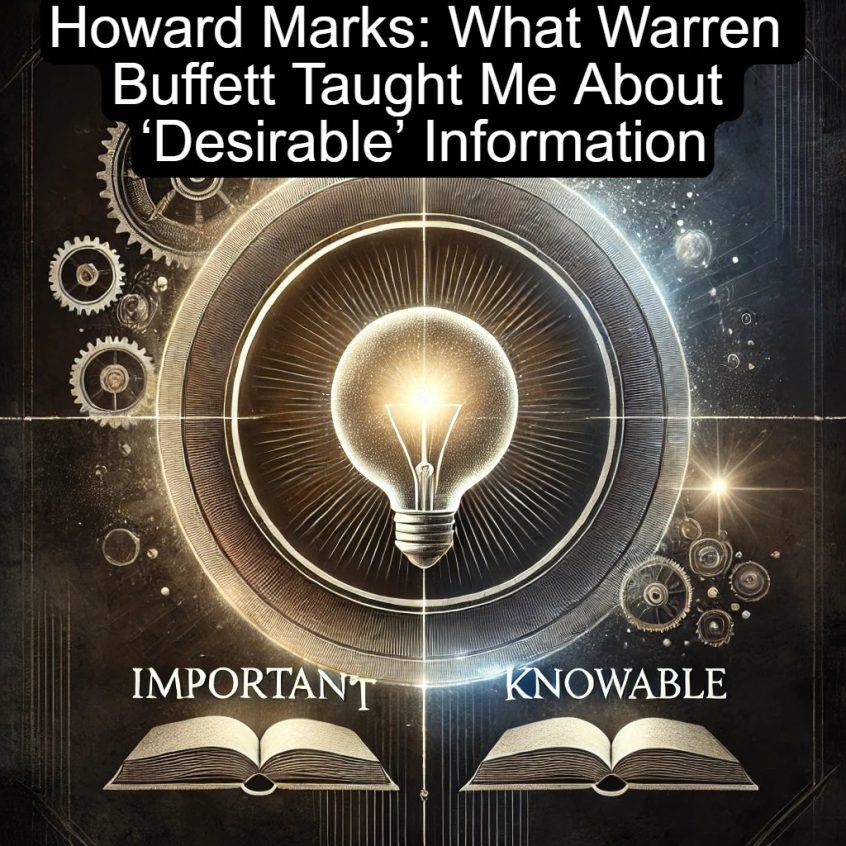In this presentation to Banco March, Howard Marks discusses the futility of predicting the future in investing, noting that most investors cannot accurately forecast macroeconomic factors like markets, currencies, or interest rates.
He highlights quotes from John Kenneth Galbraith, Amos Tversky, and Mark Twain to stress the dangers of acting on false certainty. Marks argues that successful investing is not about guessing the future but accepting its inherent uncertainty.
He also references Warren Buffett’s view that useful information must be both important and knowable, concluding that since macro factors are unknowable, basing investment strategies on them is misguided and potentially harmful.
Here’s an excerpt from the presentation:
Marks: Most investors cannot see the future better than anybody else, and trying to predict the future will not produce investment success. One of my heroes, John Kenneth Galbraith, said, “We have two kinds of forecasters: the ones who don’t know and the ones who don’t know they don’t know.” The truth is, the future is uncertain. And yet, what is investing but deploying money for the future?
Now, most investors act as if they can see the future and base their investment decisions on their view of the future. Either they think they can, or they think they have to pretend that they can for their business. I think it’s dangerous because, if it turns out that they really can’t—as I believe—then there’s a problem.
There was a behaviorist named Amos Tversky at Stanford University, and he said something I thought was brilliant: “It’s frightening to think that you don’t know something, but more frightening to think that, by and large, most people go around acting as if they do.”
We have an American humorist, Mark Twain, who said it even better: “It’s not what you don’t know that gets you into trouble. It’s what you know for certain that isn’t true.”
This is extremely important. I can’t emphasize enough the importance of keeping this in mind. For me, if every sentence you say starts with the words, “I may be wrong, but…” or “I don’t know, but…,” then you’re unlikely to get into trouble. The way you get into trouble is thinking that you really do know what the future holds—and of course in my opinion being wrong.
Now, in our business, once in a while somebody gets famous for a particularly brilliant prediction, but it usually turns out that they can’t repeat that. I say that our business is full of people who got famous for being right once in a row.
And, of course, being right once in a row doesn’t do any good because you never know if the next one has any value. But that’s the way it is—almost nobody is right much more than once in a row.
Everybody in our business makes predictions about what’s going to happen. If you look at the great investors of the world, virtually none of them got famous by being able to predict the future of what we call macro.
When I’m talking about forecasts today, I’m talking about the macro: economies, markets, currencies, interest rates. These are the big-picture factors.
They’re very important, and everybody would like to know what they imply, but they just can’t. Warren Buffett said to me one time, “For a piece of information to be desirable, it has to satisfy two criteria: it has to be important, and it has to be knowable.” The macro is extremely important, and everybody says to me, “How can you not base your investment approach on macro? It’s so important.”
I say, “Yes, but it’s not knowable. And if it’s not knowable, then trying to base your approach on macro is really a waste of time—or worse.”
You can watch the entire presentation here:
For all the latest news and podcasts, join our free newsletter here.
Don’t forget to check out our FREE Large Cap 1000 – Stock Screener, here at The Acquirer’s Multiple:



